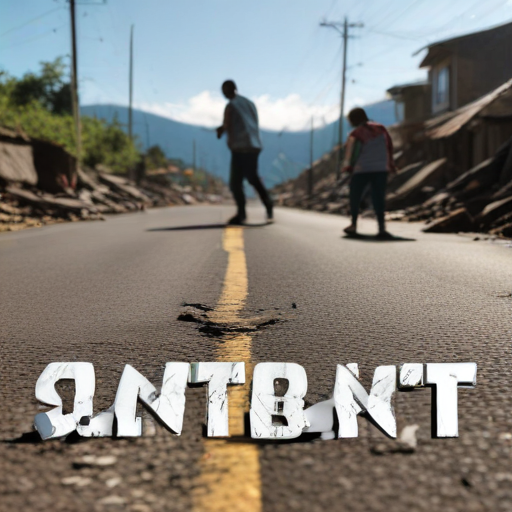A strong magnitude 7.3 earthquake struck off the coast of Vanuatu on Tuesday, causing significant destruction across the South Pacific island nation and resulting in at least six confirmed fatalities. The earthquake, which hit just before 1 p.m. local time, had its epicenter 18 miles west of Port Vila, Vanuatu’s capital, and occurred at a depth of 35 miles. Following the initial quake, a magnitude 5.5 aftershock was recorded.
As rescue efforts unfolded, medical facilities in Port Vila faced challenges in treating the injured, with many reports of damaged infrastructure, including a building that houses the U.S. embassy. The Red Cross’s Katie Greenwood reported on social media that hospitals were overwhelmed with incoming casualties, and communications remained disrupted hours after the quake, complicating rescue operations.
While a tsunami warning was issued, it was lifted shortly thereafter, but residents were advised to stay away from coastal areas due to ongoing monitoring challenges. The Geohazards Department’s communications were affected by power outages, limiting official updates on the situation.
Visual accounts shared on social media depicted significant destruction in Port Vila, including collapsed buildings and blocked roads. An eyewitness reported seeing rescuers attempting to help those trapped under debris without specialized equipment, and damage to multiple diplomatic missions was confirmed, though all U.S. embassy staff were reported safe.
Experts noted that Vanuatu is situated on a subduction zone, leading to frequent seismic activity in the region. Some indicated that given the magnitude of the earthquake, the damage could have been far worse.
Assistance offers from neighboring countries were quickly extended, with Australian and New Zealand officials pledging support. As Vanuatu approaches a snap election set for January, the nation faces not only the immediate challenges posed by the earthquake but also a complex political landscape influenced by recent leadership changes.
Despite the destruction, the quick response and regional solidarity could help foster hope for recovery and rebuilding efforts in Vanuatu. The resilience of the local population, combined with international support, can serve as a cornerstone for a brighter future as the nation navigates through this challenging time.
In summary, the earthquake in Vanuatu highlights both the vulnerability of island nations to natural disasters and the strength found in community and international cooperation in the face of adversity.
